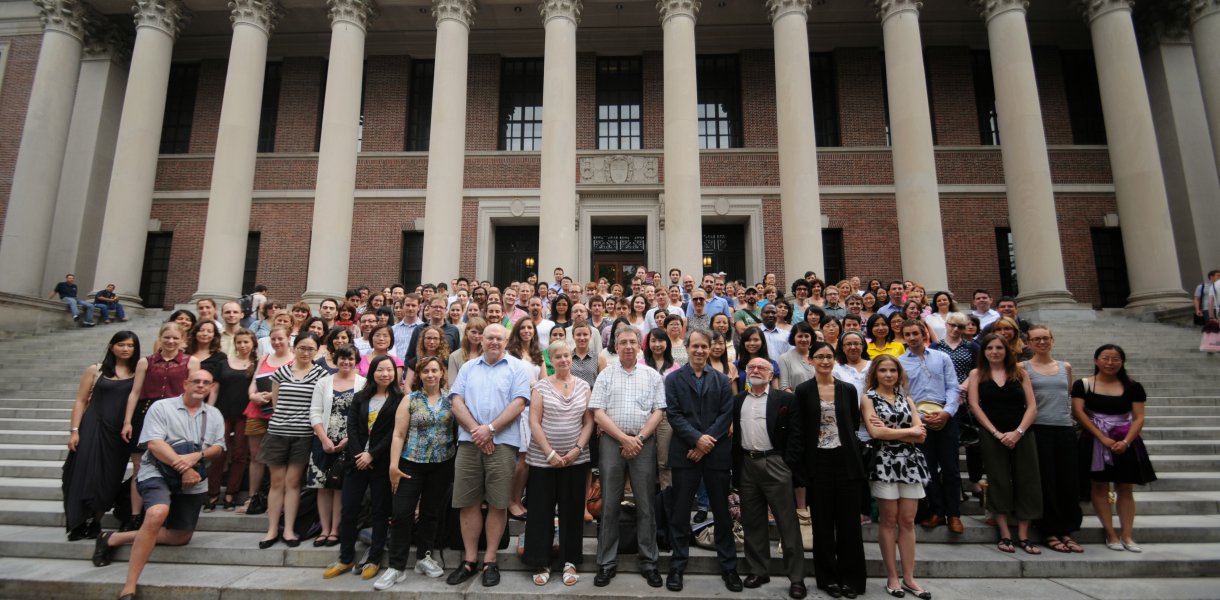The Institute for World Literature at the Calouste Gulbenkian Foundation: World-Literature
In partnership with Centro de Estudos Comparatistas (University of Lisbon) and the Institute for World Literature (University of Harvard)
With simultaneous translation and livestream
25 Jun 2015 - 15:00
Auditorium 3 (with video circuit at Room 3)
Free admission
The fifth edition of the IWL Summer School, wich is based at the University of Harvard, will be held from 22 June to 16 July at the Faculty of Letters of the University of Lisbon, bringing together for the first time in Portugal a group of internationally renowned specialists in Comparative Studies and World Literature. The Calouste Gulbenkian Foundation will host the activities programmed for 25 June, which will include a plenary lecture and a panel discussion.
The lecture, which will be given by the Cape Verdean writer Filinto Elísio, will consist of a reflection upon the visibility of Portuguese-speaking African Literatures within the framework of World Literature, questioning the place of national literatures, particularly in an African context, in our present-day globalised world. This will be followed by a panel discussion composed of David Damrosch (Harvard U.), Debjani Ganguly (Australian National U.), Jale Parla (Istanbul Bilgi U.) and Jonathan Arac (Pittsburgh U.), which will debate the current panorama of World Literature Studies. Both sessions will be in English, with simultaneous translation to Portuguese.

The Institute for World Literature (2013) © Alexandra Stote
Filinto Elísio, “World Literature and métissage”
Africa occupies a clearly defined space within the framework of World Literature. In colonial times, the various African regions developed their own national literatures, some English and Frenchspeaking in origin, others Portuguesespeaking or written in other European languages, besides yet others written in Arabic. Special emphasis will be given here to the dimension of Pan-Africanism, the emergence of literature and the Négritude movement in French-speaking African countries. At the same time, the lecture will centre on Portuguesespeaking African literatures – highlighting the literatures of Angola, Cape Verde and Mozambique – in their various periods from the 19th to the 21st century, covering many generations of aesthetic and literary developments. Cape Verde is taken as a paradigmatic case of a literature that, by virtue of its métissage and its multicultural nature, in all of its various nuances, perfectly fits the definition of World Literature, both in its specificity and its universality.
Panel discussion on “The Global Novel and the Novel in a Global World”
IWL’s mission is to reflect upon the study and teaching of literature in the age of globalisation. The aim of this session will therefore be the discussion of recent contributions made to world literature and comparative literature, reflecting upon the redefinition of disciplinary boundaries and the need to update our theoretical and epistemological models relating both to classical and modern philology and literary theory and criticism. The phenomenon of the circulation of literary works in translation, the possible ways of reading them in different contexts, and their systemic implications of an economic, political and religious nature, are questions that will be at the centre of the debate, which will also consider the discipline’s relationship with translation studies, cultural studies and postcolonial studies.
